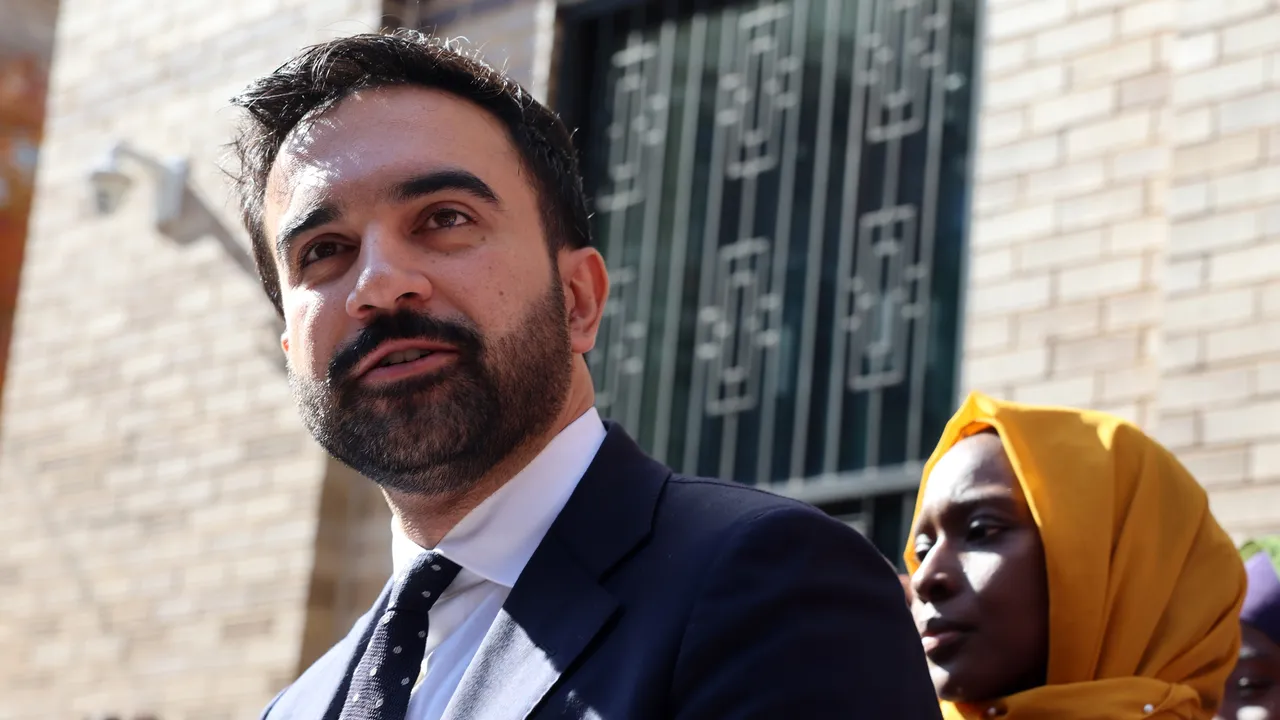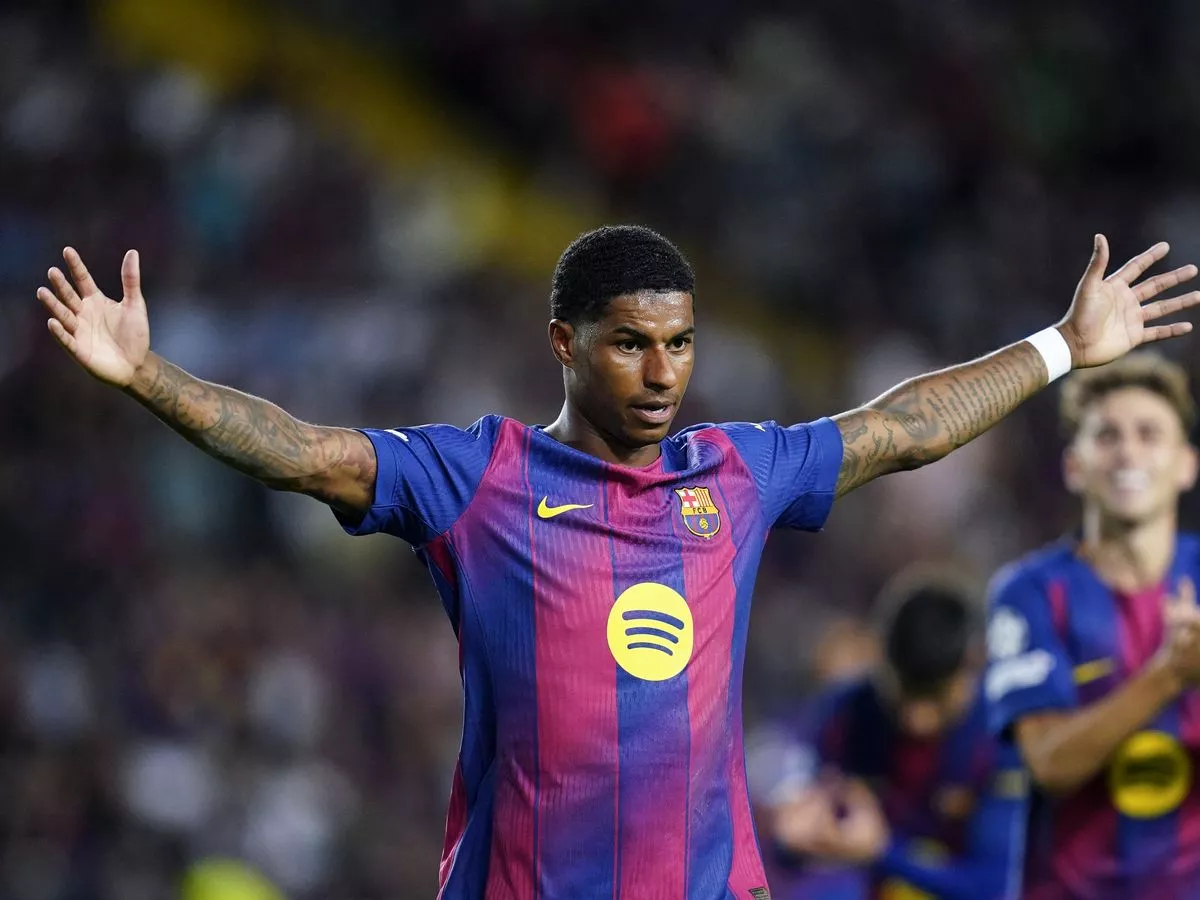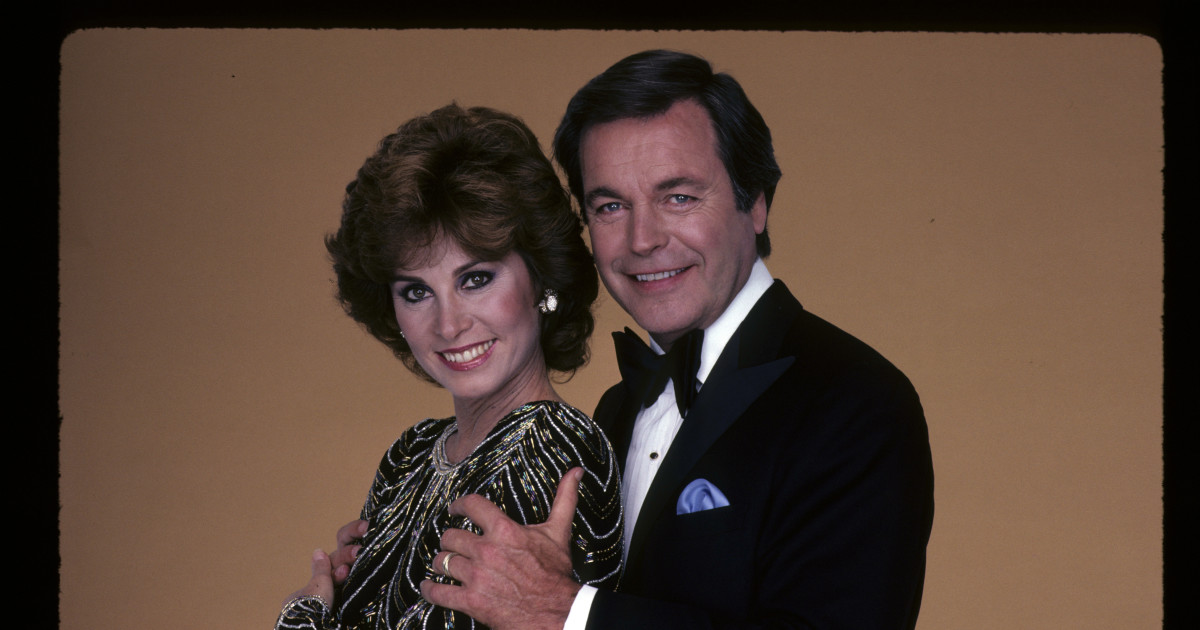Copyright The New Yorker

In the autumn of 2008, Colin Powell, the former Secretary of State under George W. Bush, broke from the Republican Party and endorsed the Democratic nominee for President, Barack Obama. It had been a brutal summer of electoral warfare. Rumors that Obama was Muslim swirled, becoming a significant aspect of the media coverage of his campaign. A group working with his opponent, John McCain, called people in swing states, planted doubts about Obama’s religious background, and asked how they would vote if they knew that the Democrat was supported by Hamas. McCain’s spokesperson defended the calls, but when a voter later said, in a town hall, that she couldn’t trust Obama, who was “an Arab,” McCain shook his head. “No, ma’am,” he said. Obama was a “decent family man.” The implication that “an Arab” could not possess those qualities was poisonous enough, but it was Powell who tackled the unspoken. On NBC’s “Meet the Press,” he acknowledged that Obama “is not a Muslim. He’s a Christian. He’s always been a Christian.” Nevertheless, Powell went on, what if Obama were Muslim? “Is there something wrong with being a Muslim in this country?” Seventeen years later, that question has become central to New York City’s mayoral race, in which Zohran Mamdani, a thirty-four-year-old democratic socialist and a Muslim, has held a solid lead since winning the Democratic primary this past summer. There have been plenty of legitimate attacks on Mamdani’s candidacy, citing his inexperience and interrogating how he will deliver on his promises to make the city more affordable. In recent weeks, though, many critiques have been tinged with specifically anti-Muslim undertones. Ellie Cohanim, a former deputy special envoy to combat antisemitism in the first Trump Administration, posted a photo of the Twin Towers burning, on September 11, 2001, and wrote, “Never Forget. . . . Vote Andrew Cuomo & save our city”; the New York Post has run headlines that link Mamdani to terrorism, such as “WEAPONS OF HAMAS DESTRUCTION.” Cuomo himself, the former governor of New York, who is running against Mamdani as an Independent, recently made remarks about his opponent that garnered wide attention. In an interview with the conservative radio host Sid Rosenberg, Cuomo asked if anyone could “imagine Mamdani in the seat,” if there were another 9/11. When Rosenberg replied, “He’d be cheering,” Cuomo chuckled along and added, “That’s another problem.” The comment echoed a similar declaration made during another much watched campaign. In November, 2015, Donald Trump, who was then running for President, claimed that he had seen “thousands” of Muslims in New Jersey celebrating during 9/11. A month later, he called for a plan to ban Muslims from entering the country in a bid to keep it safe. After he took office, in January, 2017, the policy went into effect, and hundreds of New Yorkers descended on J.F.K. Airport to protest. Governor Cuomo, in a show of solidarity, declared, “As a New Yorker, I am a Muslim.” It was a politically useful sentiment back then. Trump’s story was a lie, but it gave voice to long-held suspicions of so-called dual loyalty. After 9/11, authorities rounded up Muslim men across the country and detained them without charge—in some cases, for years—or deported them for minor visa violations. To avoid such fates, many Muslim families fled the U.S., leaving behind neighbors and friends. The New York City Police Department devised a Demographics Unit, whose undercover officers and informants combed through Muslim neighborhoods and hid in bookstores and mosques and restaurants in search of terrorist threats, leaving communities fearful that they were always being watched. The program continued for years and, after being challenged in court, was eventually disbanded. Some of the accusations lobbed at Mamdani in recent weeks mirror previous Islamophobic episodes in New York’s history. When the Park51 mosque proposal, which would have created the city’s biggest public Islamic cultural center, was passed, in 2010, the plan drew swift opposition from conservative activists who nicknamed it the “Ground Zero mosque,” because of the site’s proximity to the World Trade Center. One oft-repeated charge was the insinuation that nefarious foreign actors were funding the project to quietly take over American culture, as part of a so-called “stealth jihad.” Rick Lazio, a Republican gubernatorial candidate at the time, described Feisal Abdul Rauf, one of the project’s leaders, as a “terrorist-sympathizing imam.” In a campaign advertisement, he wondered, “Where is this money coming from? Who’s really behind it?” Steve Bannon sounded a similar refrain about Mamdani’s campaign in an interview in mid-October. “We have no idea where this money’s coming from,” he said. Fox News, the New York Post, and other conservative outlets have levelled the accusation, scrutinizing “foreign donations” to the campaign that amounted to several thousand dollars, out of a total of fifteen million. The Mamdani campaign includes dozens of Muslim staff members who have experienced discrimination and who knew early on that they were likely to confront anti-Muslim attacks as the campaign progressed. This was not least because Mamdani has been a vocal supporter of the Palestinian cause, and critics have simplified and attacked his positions as antisemitic in the heated atmosphere ushered in by Hamas’s October 7th attack and Israel’s ongoing war in Gaza. It was no longer as opportune for political leaders to say, “I am a Muslim.” This summer, during the primary, a pro-Cuomo super PAC designed mailers that darkened and thickened Mamdani’s beard. On the debate stage, opponents suggested that he supported terrorism. After Mamdani won, Marjorie Taylor Greene, the congresswoman from Georgia, posted a photo on social media of the Statue of Liberty covered in a black burqa; Randy Fine, a Republican congressman from Florida, said that Mamdani would install a caliphate in the city. “There isn’t a moment where we didn’t notice the Islamophobia,” Zara Rahim, a senior adviser on Mamdani’s campaign, told me. “But we have extensive message disciplining. We will talk about affordability until your ears bleed.” It’s true that Mamdani has been zealous about staying on message—his insistent steering of every conversation toward housing and free buses can be almost exhausting. But, after Cuomo’s 9/11 comment, and the Republican candidate Curtis Sliwa’s claim, during the final debate of the election, that Mamdani supported “global jihad,” the Democratic nominee decided to directly address the issue in prepared remarks, a full year after launching his campaign. Last week, Mamdani, flanked by several Muslim New Yorkers, stood in front of a mosque in the Bronx and gave a tearful, ten-minute speech about enduring Islamophobia. He recounted how, after 9/11, he had been interrogated at an airport and asked if he had plans to attack New York, how an aunt had felt fearful of wearing a hijab, how a classmate had been pressured to be an informant, how a staff member’s garage had been spray-painted with the word “terrorist.” “To be Muslim in New York is to expect indignity,” he said. “But indignity does not make us distinct—there are many New Yorkers who face it. It is the tolerance of that indignity.” Indignity, and tolerance of it, soon arrived. Vice-President J. D. Vance wrote on social media, “According to Zohran the real victim of 9/11 was his auntie who got some (allegedly) bad looks.” In fact, Muslims in the U.S. faced a surge of hate crimes after 9/11; the F.B.I. reported a sixteen-hundred-per-cent increase compared with the year prior. Women in hijabs were not just given “bad looks”—they were beaten or stabbed. That Vance chose to fixate on this tiny detail in Mamdani’s speech stood in remarkable contrast to his breezy dismissal, the previous week, of a report in Politico that dozens of young Republican leaders had exchanged shockingly racist text messages. “The reality is that kids do stupid things, especially young boys,” Vance said. Meanwhile, other critics cried foul upon uncovering that the “aunt” Mamdani mentioned was not an immediate family member but rather his father’s cousin. (This supposed revelation reflected an absurd misapprehension of the ways that many New Yorkers understand and refer to family units.) I imagine that Vance’s claim that Muslims aren’t real victims of 9/11 was difficult to stomach for the Muslims who lost a loved one in the towers or on the planes. It must have been heartbreaking, for instance, to the mother of Mohammad Salman Hamdani, a twenty-three-year-old E.M.T. and a police cadet who had rushed into one of the towers soon after the attack started. His family went searching for him in local hospitals to no avail. When authorities arrived at their home, it was not to offer help but to question them; the government suspected that Hamdani was an accomplice to the hijackers. Months later, his remains were found in the Ground Zero wreckage. “They said his body parts were in 34 pieces,” his mother told NPR. Today, Hamdani is counted among the victims, but his name is not listed on the same plaque as other first responders at the World Trade Center memorial. Mamdani, in his speech, had declared that he was speaking to any New Yorker “who feels that they carry a stain that can never be cleaned.” Even some of the dead, it seems. Epithets such as “extremist” and “jihadist” are used to describe Mamdani so casually and with such regularity that they’re hardly notable anymore. When Eric Adams, the sitting mayor, endorsed Cuomo, he warned that “Islamic extremism” might overcome the city if Cuomo loses. No one pressed him on whether he was saying that Mamdani was an Islamic extremist, or challenged him on the basis of the suggestion. There’s been little, if any, political cost to peddling such rhetoric throughout the years. In 2016, Hillary Clinton spoke of Muslim Americans being on the “front lines to identify and prevent” terrorism, while Trump declared, “I think Islam hates us.” Many Americans don’t recognize Islamophobia as racism at all, believing that it’s just a “sensible position,” as the conservative media personality Megyn Kelly insisted last week. A favorite line of Cuomo’s during his campaign has been that Mamdani is too socialist to be a Democrat. But, in suggesting that Mamdani would celebrate another 9/11 and alleging that Mamdani is a “radical,” Cuomo seems on the brink of articulating another charge: that Mamdani is too Muslim to be mayor, that there is something wrong with being Muslim in this country. Adams and Silwa have denied their comments are Islamophobic, and Cuomo has insisted that he “condemns” such racism against Mamdani. But the dog whistles are shrill, and familiar. And there is one significant way that the anti-Muslim attacks faced by Mamdani differ from those of years past. Mamdani was not born in the United States, and explicit calls for his denaturalization and deportation have recently grown louder, accompanied by vague allegations that he lied on his citizenship application. Many Muslim immigrants were deported in the years after the September 11th attacks, but the demand to denaturalize public figures has little historical precedent. This is, of course, no longer a fringe demand, as Trump’s Muslim ban once seemed: Muslim students who protested the war in Gaza have been picked up off the streets of New York City and sent to immigration detention, and are fighting the government’s efforts to denaturalize them, too. In the years since 9/11, the Muslim community’s trust in government, law enforcement, and politicians has eroded spectacularly. Mamdani understood early in his campaign that he could not take Muslim support for granted. New York City is home to about a million Muslims—nearly a quarter of the country’s entire Muslim population. Since his campaign started, he has personally visited fifty-five mosques; his staffers have visited more than two hundred. Every week, he attends Friday prayers, and speaks to a congregation. No mayoral candidate in New York’s history has made such an effort to reach so many of the city’s Muslims. Mamdani’s opponents warn that his victory will lead to dystopia. But, for many, dystopia is already here. On the streets, ICE agents tackle people to the ground and pull parents from their clinging children. As the government shutdown enters its fifth week, hundreds of thousands of New Yorkers are preparing for their health-insurance premiums to skyrocket. More than a third of the country’s Muslims live below the poverty line. Many Muslims in New York City—who work as taxi-drivers, halal-cart venders, and office janitors—live in dense, working-class neighborhoods. At one point, during the height of the pandemic, a Muslim community in the city was holding fifteen funerals every day. Any mayor will have to attend to this constituency, these Muslims who are not just Muslims. ♦



